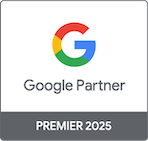
PPC Intelligence: How to optimize campaigns using data, automation, and competitor insights
Abisola Tanzako | Aug 13, 2025

Table of Contents
- What is PPC intelligence, and why is it essential in 2025?
- Types of ppc intelligence and their focus
- Step-by-step guide to implementing PPC intelligence in your campaigns
- Popular PPC intelligence tools
- How to apply PPC intelligence to your campaigns
- Benefits of using PPC intelligence
- Common pitfalls to avoid
- Winning the smart way
- FAQs
According to Search Engine Journal, the adoption of PPC intelligence can increase campaign ROI by up to 25%. Competition is fierce, ad costs are rising, and consumers are more selective than ever.
That is where PPC intelligence comes in. It is not just another buzzword. It is a game-changing approach to optimizing your advertising strategy with data, automation, and competitive insights.
This article covers the key components of PPC intelligence, essential tools, and how to implement a smarter, data-driven strategy.
What is PPC intelligence, and why is it essential in 2025?
PPC intelligence refers to the strategic use of data, machine learning, competitor analysis, and advanced tools to optimize paid search and display campaigns.
It is about gaining a deeper understanding of what drives performance and what wastes your ad spend. It involves pulling in multiple data streams (e.g., competitor behavior, customer intent, historical performance) and turning them into actionable insights.
These insights allow you to make informed decisions around:
- Bidding strategy
- Keyword targeting
- Ad copy optimization
- Audience segmentation
- Budget allocation
Types of ppc intelligence and their focus
Types of PPC intelligence and their focus include:
1. Competitor intelligence:
- Focus: Analyze rival ad performance
- Example tools: SpyFu, SEMrush
2. Keyword intelligence:
- Focus: Identify profitable, intent-based terms
- Example tools: Ahrefs, Google Ads Keyword Planner
3. Audience intelligence:
- Focus: Segment based on behavior and psychographics
- Example tools: GA4, Meta Insights
4. Conversion intelligence:
- Focus: Optimize post-click journey.
- Example tools: Hotjar, Unbounce
5. Automation:
- Focus: Auto-optimize bids and ad creatives
- Example tools: Optmyzr, WordStream
Step-by-step guide to implementing PPC intelligence in your campaigns
Here’s a step-by-step guide to implementing PPC intelligence in your campaigns, written in a simple, straightforward style that helps you make smarter decisions and maximize ROI:
Step 1: Define clear campaign goals
Start by asking:
- What do you want to achieve with this PPC campaign? (More website visits, leads, sales, or brand awareness?)
- Set measurable KPIs, such as CTR, conversion rate, or ROAS.
Step 2: Conduct competitor analysis
Use PPC intelligence tools (like SEMrush, SpyFu, or iSpionage) to:
- Discover which keywords your competitors target.
- Analyze their ad copy and landing pages.
- Benchmark your budget and performance.
Step 3: Gather and analyze keyword intelligence
Use keyword tools to:
- Find high-performing, low-competition keywords.
- Analyze keyword trends and seasonal spikes.
- Group keywords into themes for ad groups.
Step 4: Create smart ad copy using insights
Based on competitor research and keyword analysis:
- Write compelling headlines with strong CTAs.
- Highlight your unique selling points (USPs).
- A/B test different versions of ad copy.
Step 5: Optimize landing pages
Your ads should lead to relevant, user-friendly landing pages.
- Match the message in your ad.
- Use clear CTAs and simple layouts.
- Test different versions to determine which one converts best.
Step 6: Leverage audience insights
Use audience data to:
- Refine targeting by demographics, interests, and behaviors.
- Build custom and lookalike audiences.
- Retarget visitors who did not convert during their initial visit.
Step 7: Monitor, track, and adjust
Use PPC intelligence dashboards and analytics to:
- Track campaign performance daily or weekly.
- Identify underperforming ads or keywords.
- Pause what is not working and scale what is.
Step 8: Automate and scale
Once you have found what works:
- Use rules and scripts to automate bidding and ad rotation.
- Expand your reach with similar audience segments.
- Repurpose high-performing ads for other platforms.
Popular PPC intelligence tools
To run high-performing PPC campaigns, having access to the right tools is not only helpful but essential.
PPC intelligence tools enable advertisers to monitor competition, optimize ad spend, detect fraud, and improve the user experience.
The following platforms can give you a critical edge.
1. SEMrush, SpyFu, and Ahrefs: These are powerful tools for competitive intelligence. They allow you to:
- Spy on competitors’ ad copies and landing pages
- Discover profitable keywords they bid on
- Track their historical ad performance.
- Uncover missed opportunities and gaps in your strategy.
2. Google Ads Keyword Planner: This is a go-to tool for keyword research. It helps you:
- Estimate keyword search volume and competitiveness.
- Forecast CPCs based on geography, language, and device
- Build keyword plans directly tied to your campaign goals
3. ClickPatrol: ClickPatrol offers intelligent click fraud protection for paid ad campaigns. It is built to:
- Detect suspicious or invalid clicks from bots, click farms, or competitors
- Provide IP-blocking and campaign alerts in real-time
- Optimize traffic by protecting your ad budget
4. Google Analytics 4 (GA4): GA4 helps track what happens after the click. It enables marketers to:
- Understand user behavior, bounce rates, and time on site
- Attribute conversions to the correct channels
- Build predictive audiences for remarketing
- Analyze cross-device and cross-platform journeys
5. Unbounce / Hotjar: These tools focus on landing page performance and user experience. Use them to:
- Test different landing page designs (A/B testing)
- Monitor user interactions using heatmaps, scroll maps, and session recordings to gain insights into user behavior.
- Identify friction points that may be reducing conversions
- PPC gets the click; these tools help you convert it.
6. Optmyzr / WordStream: These are platforms for automation and optimization. Their features include:
- Smart bid management
- Ad text optimization suggestions
- Budget pacing and performance alerts
- Quality Score improvement insights
How to apply PPC intelligence to your campaigns
Implementing PPC intelligence does not have to be complicated. Start with these practical steps:
- Audit your current campaigns: Analyze past performance to find gaps. Are you wasting money on irrelevant clicks? Is your bounce rate too high? Use tools like GA4 and your ad platform’s reports to spot trends.
- Spy on competitors: Use tools like SEMrush or SpyFu to uncover what’s working for your competitors. Look for underutilized keywords, effective ad messaging, or overlooked geographic opportunities.
- Upgrade your keyword strategy: Move beyond basic keywords. Use long-tail variations, match types, and intent-driven phrases. Track search terms and frequently add negative keywords to minimize waste.
- Segment your audience: Utilize audience insights to develop a targeted persona that accurately represents your audience. Then, craft custom ad copy and landing pages for each segment. The more relevant your message, the better the results will be.
- Test and optimize continuously: A/B test ad variations, landing pages, and CTAs regularly. Track changes and iterate quickly. Intelligence comes from continuous learning.
Benefits of using PPC intelligence
Still on the fence about diving deep into PPC intelligence? Let’s break down the game-changing advantages it brings to your marketing strategy.
- Higher ROI: By analyzing real-time performance metrics, search intent, and user behavior, you can reduce wasted ad spend on irrelevant clicks. PPC intelligence helps you focus on high-quality traffic that is more likely to convert, meaning more revenue from the same (or even smaller) budget.
- Stronger competitive position: PPC intelligence gives you a peek into your competitors’ strategies: what keywords they target, how much they are bidding, and which ads they are running.
- Improved operational efficiency: Manual campaign optimization can eat up hours. With automation features like smart bidding, rule-based adjustments, and ad rotation, you streamline your workload and reduce the chances of human error.
- Data-driven decisions: Every click, impression, and conversion tells a story. PPC intelligence helps you read it. By grounding your decisions in clear metrics rather than hunches or assumptions, you eliminate guesswork and ensure that real performance data justifies every action you take.
Common pitfalls to avoid
Avoiding these common mistakes can help you maximize the benefits of your tools and insights.
- Over-reliance on tools: Automation and data are great, but they are not substitutes for strategic thinking. Algorithms cannot always grasp context, brand voice, or emotional nuance. Always pair machine recommendations with human judgment.
- Ignoring search intent: It is easy to chase keywords with high volume or low cost-per-click (CPC). However, if your content does not align with the user’s true intent, you will lose the lead and the budget.
- Using a one-size-fits-all strategy: What works for a SaaS brand might flop for an eCommerce store. Your PPC intelligence strategy should consider your industry, business model, customer journey, and even sales cycle.
Winning the smart way
PPC intelligence is more than a toolkit; it is a mindset. Instead of blindly spending on clicks, you are investing in insights.
Instead of reacting to performance, you are proactively improving it. With the right blend of tools, strategy, and continual learning, PPC intelligence empowers you to run more efficient, effective, and profitable campaigns.
Turn your campaigns into conversion machines. Start using PPC intelligence tools today for smarter, more profitable advertising.
FAQs
Q. 1 What is the difference between PPC intelligence and PPC management?
PPC intelligence focuses on gaining strategic insights through the use of data and tools. PPC management involves the execution: creating, running, and monitoring campaigns.
Q. 2 Can small businesses benefit from PPC intelligence?
Absolutely. Even small ad budgets benefit from better targeting, reduced waste, and more thoughtful decision-making.
Q. 3 Do I need expensive tools to use PPC intelligence?
Not necessarily. Many free tools, such as Google Ads, GA4, and Google Trends, provide valuable data. Paid tools can enhance your strategy, but are not mandatory.





